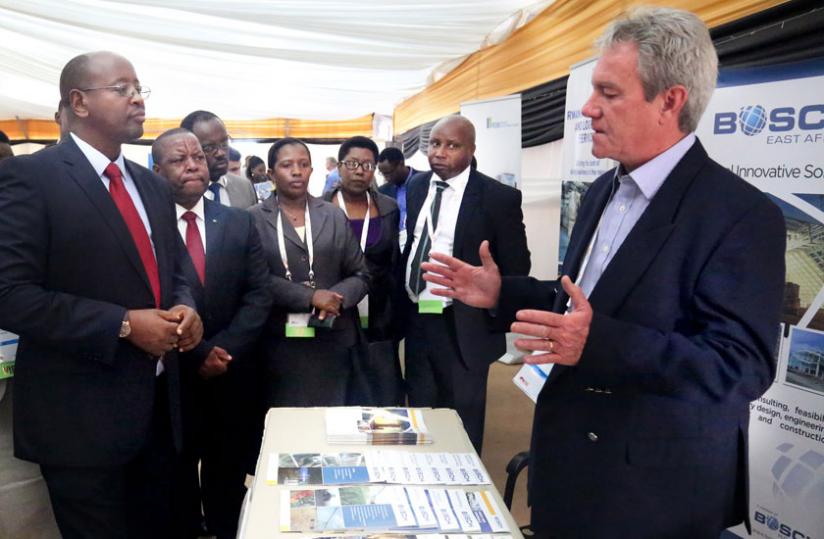The government is optimistic it will attract more investments into the energy sector once it has fixed a tax incentive proposed in the new Investment Code.


The government is optimistic it will attract more investments into the energy sector once it has fixed a tax incentive proposed in the new Investment Code.
The new code will see government slash corporate income tax for those investing in the energy sector from 30 per cent to 15 per cent, Francis Gatare, the chief executive of Rwanda Development Board (RDB), said yesterday.
Speaking at the iPAD Power and Infrastructure Investment Forum that started in Kigali, yesterday, Gatare said the incentive will, among others, help government to achieve energy target of generating at least 563MW on the national grid by 2017.
"We have proposed to parliament to approve the new code that will see corporate income tax for all investors in the energy sector, reduced by 50 per cent, the idea is to attract more investors into the sector thus increase the country’s generation capacity,” Gatare said.
The two-day forum brings together more than 200 energy experts, investors and policymakers from across the globe.
Gatare said RDB is putting in place a conducive investment climate in terms of reforms in the energy sector to help government and the private sector realise its energy objectives.
"With the energy investment projects ready, and new tax incentives initiated, we are very confident that the new incentives will help fast track government’s energy generations target of 563MW by 2017,” Gatare told The New Times on the sidelines of the meeting.
This will not only increase power generation capacity but also improve the ease of doing business in the country, he added.
Streamlining investments
The Minister for Infrastructure, James Musoni, said streamlining energy investment projects and procedures will help attract more foreign direct investments.
He also called on local investors to venture into the sector to increase the country’s power generation capacity.
"While government plans to invest about $3 billion dollars in to the sector, the private sector is expected to invest about $1.3 billion,” Musoni said.
"This will help increase our power generation, access and address the question of the affordability.”
Jean Bosco Mugiraneza, the chief executive of Rwanda Energy Group, said shortage of infrastructure was one of the major constraints undermining power generation, supply and economic development.
"Africa is rich in energy resources but poor in energy supply, this is the situation we are trying to deal with. However, this in itself presents a huge business opportunity for both local and foreign investors to start looking at this sector as a serious profitable business,” Mugiraneza said.
"The private sector must be ready to make good use of the energy we bring because this is when it will have an economic impact and help drive general economic growth.”
Fidele Ndayisaba, the mayor of the City of Kigali, where access to electricity currently stands at 51 per cent, said there is high demand for power in the city as reflected in the master plan being rolled out.
"We may be losing some potential investments because of energy shortage. When we discuss with investors, they always ask us whether they will have realistic energy. This means that if we can expedite the energy sector, it will be a big boost for the economic development of the country,” Ndayisaba said.
National power generation capacity expected to increase by 61.5MW by 2015, through projects such as NyabarongoII (28MW), Kivuwatt (25MW), Gishoma Peat Plant (15MW) and Giggawatt Solar Power Plant (8.5MW).


